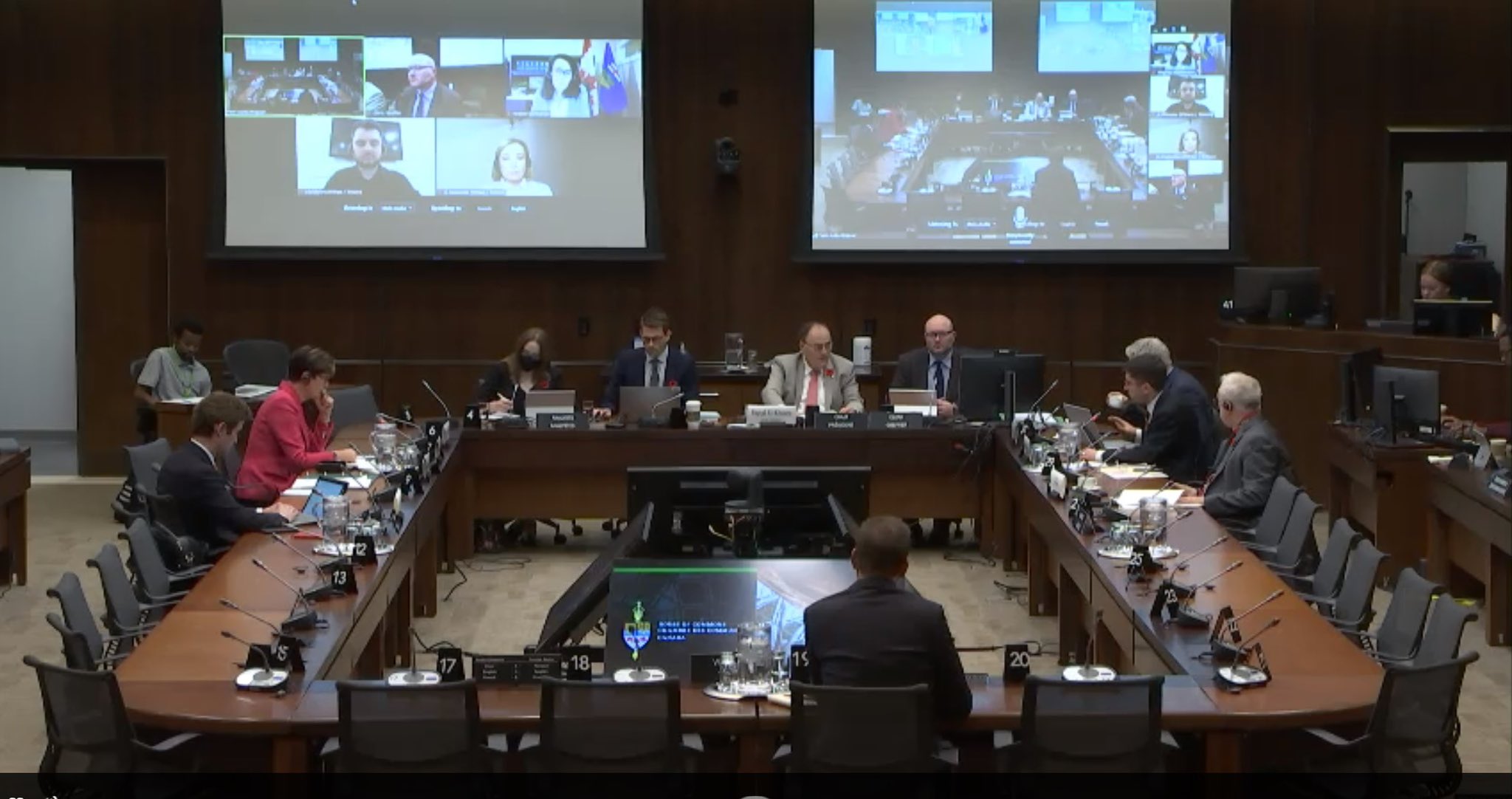On October 31, 2023, hearings were held in the Subcommittee on International Human Rights of the Standing Committee on Foreign Affairs and International Development of the House of Commons of Canada. During the hearings, representatives of the Civil Network OPORA — Chairman of the Board and co-founder of the International Center for Ukrainian Victory Olga Aivazovska and international lawyer Andrii Mikheiev — were testifying.
In her opening speech, Olga Aivazovska said that, according to the official data, since February 24, 2022, more than 510 children have been officially reported as killed and more than 1141 children have been wounded as a result of Russian assaults. However, the real numbers are suggested to be much higher considering those killed and injured on currently occupied territories, where it is impossible to obtain exact information. Ukrainian children are suffering from all kinds of crimes which were earlier identified by the UN SC Resolutions as grave and impermissible offences against children during the international armed conflict.
“19546 Ukrainian children are reported as forcibly transferred to the territory of Russian Federation and occupied territories of Ukraine and as forcibly integrated into Russian environment through adoption, placement into educational institutions, automatic obtaining of citizenship without any realistic chance to return to Ukraine and reunite with their families,” Aivazovska said. “Resulting from indiscriminate air strikes by the Russian Federation, almost 4,000 facilities and institutions for children were damaged or completely destroyed.”
These calls have culminated in the action by the Russian Federation aimed at the forced deportation of Ukrainian children, illegal adoption by Russian citizens, forced passportization and re-education, including military-patriotic education. According to the Genocide Convention, the “forcible transfer of children from one human group to another” is genocide, and direct incitement for such actions is a crime in itself.
One of the key International Humanitarian Law principles underlines that the occupying power should refrain from bringing irreversible changes which would fundamentally alter the status or character of occupied territories There are reported instances where children were taken by occupying authorities to camps in Crimea allegedly for safety reasons and allegedly for recreational activities but were then never returned to their homes or parents’ care. In the institutions where children were held, they were forced to go via the so-called “integration programs” that are aimed at enforcing on them Russian views on what is happening in Ukraine, in the world, and also on culture and society.
Answering the question of why Russia is deporting Ukrainian children, OPORA’s representative shared historical experience and personal experience of her family, “My son is the fourth generation of my family suffering from Russian aggression. It was the tradition on the USSR stage of development of this empire that children were the first priority for Moscow, which did everything to have them under the power of the authoritarian ideology. Many people in Ukraine who had connection with different protest groups and spent years in prison were separated from their children. Meny of them were adopted by very proactive Communist groups, which took this children into their families and tried to reeducate them. It’s not something new for us, for Ukrainians, and the tools Moscow is using now are the same as before.”
“We have established the facts that Russian families are currently materially and spiritually encouraged to adopt Ukrainian children, Ukrainian orphans and children deprived of parental care as soon as possible. Also, the central and local legislation in Russia is simplified and facilitated to make this procedure faster and simpler,” Andrii Mikheiev said.
He added that the occupation authorities in the temporarily occupied territories of Ukraine were threatening to deprive parents of parental rights who do not want to send their children to pro-Russian schools, or those whose teenage children themselves do not want to be sent to such institutions.
Moreover, the lawyer noted, “Using children directly as soldiers is not the only way of using them by Russia for the war purposes. There are known cases when Russian authorities used children from the occupied territory to get the intelligence information. They also make teenagers patrol the territory and bring information on peeople who have connections with the Ukrainian armed forces or Ukrainian law anforcement authorities.”
Accoring to the lawyer, there are many officially established cases when Ukrainian children unknowingly for them were used to provide the location data of some objects through the mobile game, developed and launched by the pro-Russian IT company, controlled by the Russian special services. Children didn’t know that by playing this game and getting virtual money and virtual awards for uploading the photos of the objects, they were providing data for the future missile attacks.
A full video of the hearing can be found by the link on the House of Commons website.
